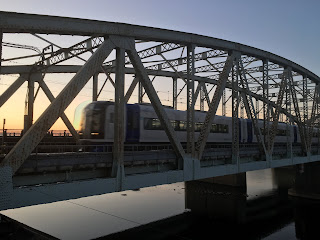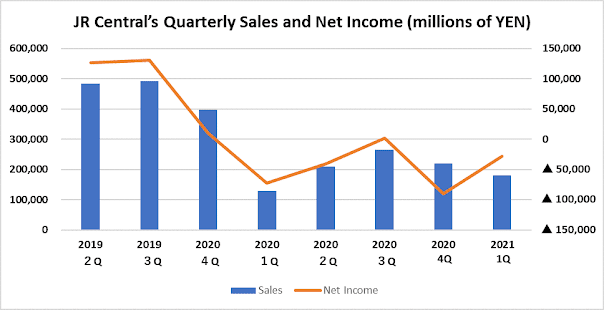Covid 19 virus spike hits Japan’s travel and railroad companies amid Tokyo Olympics
Foreign visitors to Japan have plummeted caused by restrictions on cross-border traffic
Japan National Tourism Organization announced on July 21 that the estimated number of foreign visitors to Japan in June 2021 was 9,300, 99.7% decrease compared to the same month of 2019 before the spread of COVID-19.
Dramatic plunge in foreign tourists was caused by restriction measures on cross-border traffic to contain COVID-19 infection. Travelers to Japan for tourism purposes are still not permitted to enter the country, unless exceptional circumstances are found. As for the first half of 2021, the number of foreign visitors to Japan was 96,300, a decrease of 99.4% from the same period of 2019.
Japan has strengthened quarantine measures for visitors to the country to cope with the spread of COVID-19 infection since late January 2020. Since then, the number of newly cases of COVID-19 repeated ups and downs forcing the government to strengthen and mitigate its preventive measures in tandem.
With the fifth wave of the pandemic surge prevailing from July, the Japanese government strengthened the infection control measures again. The Japanese government has extended Tokyo's fourth coronavirus state of emergency, which started on July 12, and added the neighboring prefectures such as Saitama, Kanagawa and Chiba along with Osaka to the measure.
While the Tokyo Olympics were being held, the infection spread not only in urban areas such as Tokyo and Osaka but also in various parts of Japan although the Olympics has been held mostly without spectators.
Central Japan Railway, the shinkansen bullet train operator posted a consolidated net loss of 28.4 billion yen for the first quarter
Under those circumstances, the future outlook for the profits of railway companies, which has been sluggish since the outbreak may not improve for the time being with newly cases hitting record high in August.
JR Central posted the net loss of 28.4 billion yen for Q1 from April to June 2021. The number of passengers of the Tokaido Shinkansen, which is a main source of the company’s profits, has not recovered and remains weak. In addition, JR Central has significantly lowered its full year net income forecast for the fiscal year ending March 2022 from the initial forecast of 90 billion yen to 15 billion yen because the recovery of railway revenue has been delayed due to the persistent impact of the virus.
Considering damages of the reiterated state of emergency on Japan’s economy and low vaccination rate in Japan, it will take a considerable amount of time until the number of passengers of the Tokaido Shinkansen fully recovers.
Nagoya Railroad, based in Chubu region like JR Central, also announced its operating loss of 1.8billion yen for Q1 from April to June 2021. The disappointing results was brought by the negative impact of coronavirus infection on railway and tourism industries.
On the other hand, the company expects that its business performance will recover before the end of this fiscal year with operating profit of 130 billion yen for the fiscal year ending March 2022. Compared to the April-June period of 2019 before the pandemic, commuter pass sales revenue decreased by 13% and non-commuter pass sales revenue decreased by 45% in the same term. While the number of passengers commuting to work and school has recovered slightly, the total number of passengers including tourists has not recovered yet. In terms of profits, the leisure service business including tourism sector continues to suffer a deficit of 3.1 billion yen dragging down Nagoya railroad’s business performance.
Although both
railroad companies forecast net profit for the full year results, their
business recovery hinges on how the pandemic will be contained. People with
knowledge of railroad businesses expect that vaccination roll out will proceed
swiftly and slow pace recovery in railroad passengers will improve
significantly as vaccination rate rises.



Comments
Post a Comment